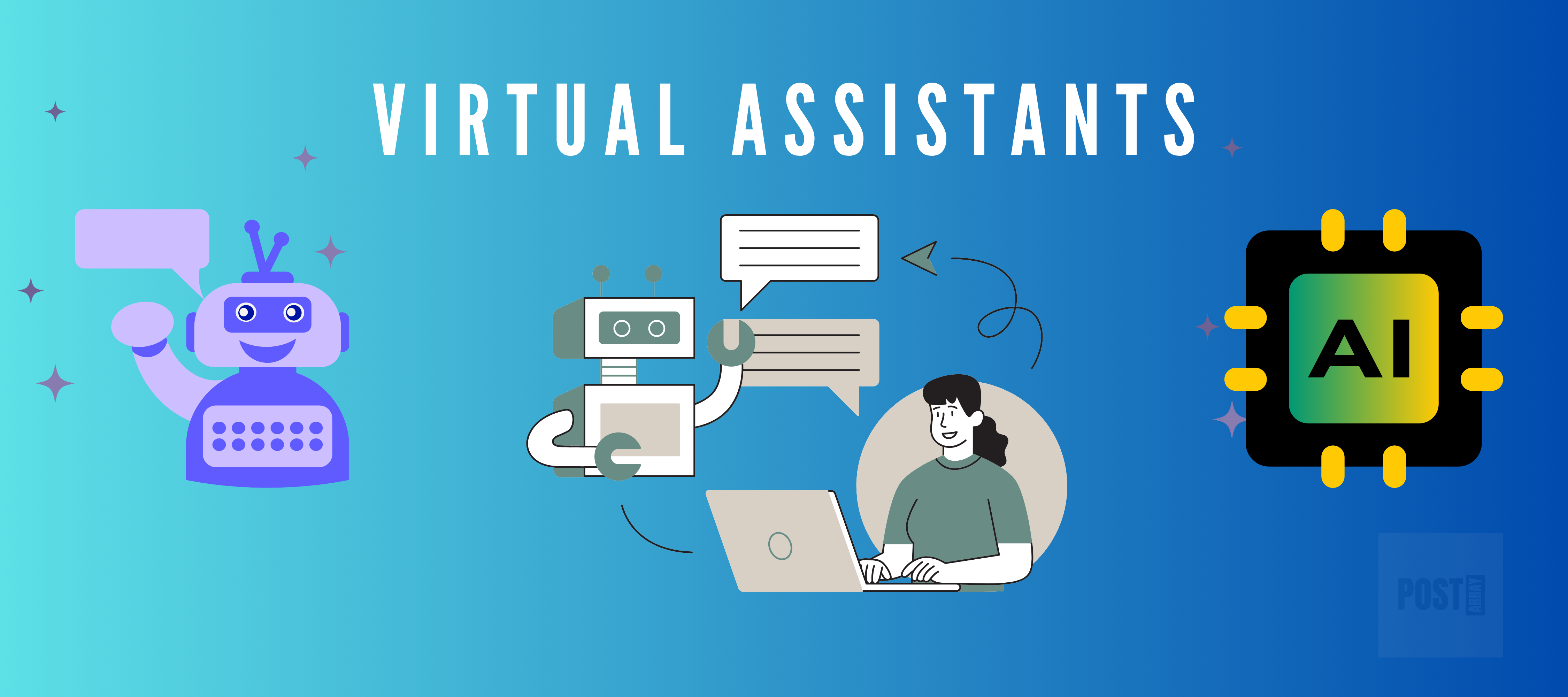Artificial Intelligence (AI) has become a transformative force in various industries, reshaping how we work, communicate, and live. Among the most prominent applications of AI are virtual assistants, which have evolved from basic, task-oriented tools to sophisticated, AI-powered systems capable of understanding and responding to complex human interactions. These AI-powered virtual assistants are not just enhancing productivity; they are revolutionizing customer service, personal convenience, and even healthcare. In this article, we’ll delve into the capabilities, benefits, and future potential of AI-powered virtual assistants, highlighting their impact on both personal and professional spheres.
The Evolution of Virtual Assistants: From Basic to AI-Powered
Virtual assistants have come a long way since their inception. Early versions, such as Clippy from Microsoft Office, were limited in functionality, offering basic support like typing suggestions or answering simple queries. However, with the advent of AI, virtual assistants have become much more advanced, capable of performing a wide range of tasks, from setting reminders and managing calendars to providing customer support and even making purchases on behalf of users.
AI-powered virtual assistants like Siri, Alexa, and Google Assistant are now integral parts of our daily lives, seamlessly integrating with various devices and services to provide personalized experiences. These assistants utilize natural language processing (NLP) and machine learning algorithms to understand user intent, learn from interactions, and improve over time.
How AI-Powered Virtual Assistants Work
AI-powered virtual assistants operate by processing and analyzing large amounts of data to understand user inputs and provide appropriate responses. They use a combination of NLP, machine learning, and deep learning techniques to interpret voice commands, text inputs, and even visual cues.
Natural Language Processing (NLP)
NLP is a critical component of AI-powered virtual assistants, enabling them to understand and respond to human language in a way that feels natural. By analyzing syntax, semantics, and context, NLP allows virtual assistants to interpret the meaning behind user queries, even when those queries are ambiguous or incomplete.
For example, when you ask Alexa, “What’s the weather like today?” the assistant uses NLP to understand that you’re asking for a weather forecast and then retrieves the relevant data.
Machine Learning and Personalization
Machine learning allows virtual assistants to improve their performance over time by learning from user interactions. Each time you interact with your AI-powered assistant, it gathers data on your preferences, habits, and behaviors. This data is then used to personalize your experience, making the assistant more accurate and efficient in responding to your needs.
For instance, if you frequently ask Google Assistant for traffic updates on your way to work, it will start providing this information proactively, even without being prompted.
The Benefits of AI-Powered Virtual Assistants
AI-powered virtual assistants offer numerous benefits, making them invaluable tools for both individuals and businesses. Here are some of the key advantages:
Enhanced Productivity
One of the primary benefits of AI-powered virtual assistants is their ability to enhance productivity. By automating routine tasks such as scheduling meetings, sending emails, and setting reminders, these assistants free up valuable time that can be spent on more important activities. For businesses, this means employees can focus on strategic tasks, while the virtual assistant handles administrative duties.
Improved Customer Service
In the business world, AI-powered virtual assistants are transforming customer service by providing instant, 24/7 support. These assistants can handle a wide range of customer queries, from answering frequently asked questions to processing orders and resolving issues. By providing quick and accurate responses, virtual assistants help businesses improve customer satisfaction and reduce response times.
Personalized User Experience
AI-powered virtual assistants excel at providing personalized experiences. By learning from user interactions, these assistants can anticipate needs, offer tailored recommendations, and deliver content that aligns with individual preferences. For example, Spotify’s AI-driven assistant can create custom playlists based on your listening history, while Amazon’s Alexa can suggest products you might be interested in based on your past purchases.
Applications of AI-Powered Virtual Assistants
AI-powered virtual assistants are being utilized in various sectors, each benefiting from the unique capabilities of these advanced systems.
Healthcare
In healthcare, AI-powered virtual assistants are playing a crucial role in enhancing patient care. These assistants can help schedule appointments, remind patients to take their medications, and even monitor vital signs through connected devices. By automating these tasks, healthcare providers can focus on delivering quality care, while patients receive timely and personalized support.
E-commerce
E-commerce platforms are leveraging AI-powered virtual assistants to provide personalized shopping experiences. These assistants can recommend products, assist with purchases, and even process returns. By analyzing customer data, virtual assistants can offer tailored recommendations, increasing the likelihood of a sale and enhancing the overall shopping experience.
Smart Homes
AI-powered virtual assistants are at the heart of smart home ecosystems. They can control smart appliances, manage energy usage, and enhance home security. For instance, you can use your assistant to adjust the thermostat, turn off the lights, or lock the doors—all with a simple voice command.
The Future of AI-Powered Virtual Assistants
The future of AI-powered virtual assistants looks promising, with advancements in AI and machine learning paving the way for even more sophisticated and capable systems. Here are some trends and developments to watch out for:
Multimodal Interaction
Future AI-powered virtual assistants will likely offer multimodal interaction, meaning they can understand and respond to a combination of voice, text, and visual inputs. This will enable more seamless and intuitive interactions, making virtual assistants even more effective in a wider range of applications.
Contextual Awareness
As AI continues to advance, virtual assistants will become more contextually aware, understanding not just the words you say, but the context in which you say them. This will allow for more accurate and relevant responses, enhancing the user experience.
Integration with Emerging Technologies
AI-powered virtual assistants will increasingly integrate with other emerging technologies, such as augmented reality (AR), virtual reality (VR), and the Internet of Things (IoT). This will open up new possibilities for how we interact with technology, making virtual assistants an even more integral part of our daily lives.
Conclusion
AI-powered virtual assistants are revolutionizing the way we interact with technology, making our lives more convenient, productive, and personalized. From enhancing productivity in the workplace to transforming customer service and personalizing user experiences, these advanced systems are becoming indispensable tools in our daily lives. As AI technology continues to evolve, we can expect virtual assistants to become even more powerful and capable, playing an increasingly important role in shaping the future of work and life.




